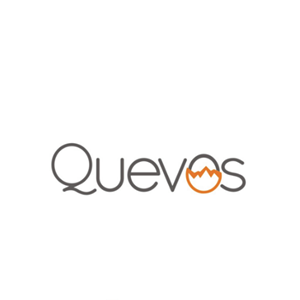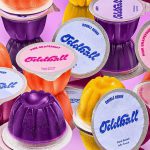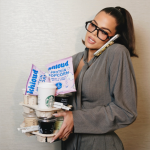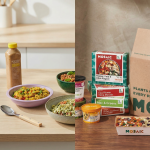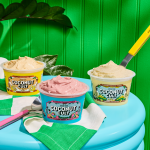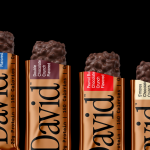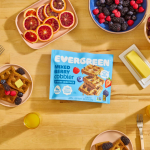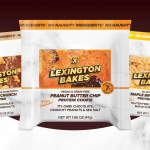The Checkout: PHA Launches “Veggies Early & Often” Packaging Icon; Zero Grocery Expands to L.A.
Welcome to The Checkout: an express lane for the weekly news you need to know, always 10 items or less.
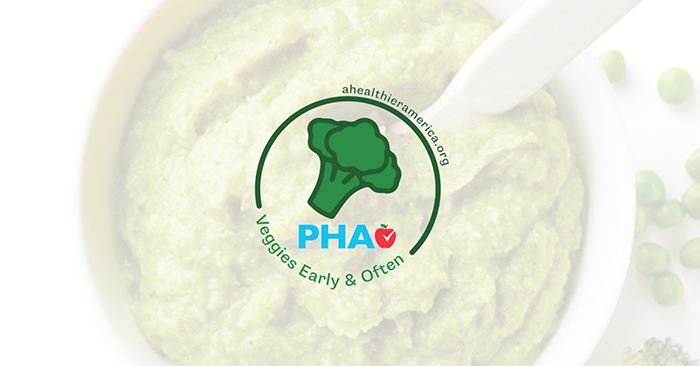
Partnership for a Healthier America Launches “Veggies Early & Often” Packaging Icon
Partnership for a Healthier America (PHA) this week launched a new “Veggies Early & Often” campaign aimed at providing consumers with a clearer way to identify the vegetable content of baby and toddler food, while also calling on brands to incorporate more vegetables into their products.
The campaign’s goal is to create transparency in the category through a new icon that can be featured on product packaging and marketing materials to differentiate between “veggie-forward” products and those featuring just a small serving of vegetables. The nutritional criteria for the icon is based on the 2020 Dietary Guidelines for Americans, which for the first time in decades laid out recommendations for infants and toddlers. Any product that wants to use the icon must feature 50% vegetable content by weight and will be certified by the PHA after being reviewed by its nutrition team, PHA said. Financially, brands part of the campaign “help offset [PHA’s] costs as a non-profit,” which include the independent evaluation process, the organization said, and it aims to follow a similar model for future corporate members.
Several brands including Fresh Bellies, lil’gourmets, Nurture Life, Tiny Organics and Square Baby plan on meeting or currently meet the requirements for this icon, and packaging featuring the new badge should start hitting shelves in the next few months, PHA said, beginning with Tiny Organics in March.
“[The Veggies Early & Often campaign] aligns with our core values and mission to raise a new generation of children that will grow up to be the healthiest versions of themselves,” Tiny Organics co-founder and co-CEO Betsy Fore said in a press release. “By offering savory-forward products and meeting the new Veggies Early & Often requirements, we’re excited to set a new industry standard in the market for what it means to introduce vegetables from the earliest days.”
Baby and toddler food is a category that has often been criticized by some natural food producers for largely consisting of products that are higher in sugar and focus more on fruit than vegetables. The campaign launch is supported by a new white paper released by the PHA that outlined the importance of incorporating significant portions of vegetables into young eaters’ diets to encourage a broad taste palate. The research indicated that brands should move beyond the practice of muting vegetable flavors with fruit and sweeteners as this can be counterproductive to developing this taste palate and avoiding the development of neophobia, the fear of unfamiliar foods.
“Despite vegetables being absolutely critical to a healthy life, infants and toddlers don’t eat nearly enough of them,” said Nancy E. Roman, president and CEO of PHA. “There is room for improvement in the retail baby and toddler food marketplace to include affordable products that promote children’s increased acceptance of veggies … and many commercial baby food offerings miss the mark.”
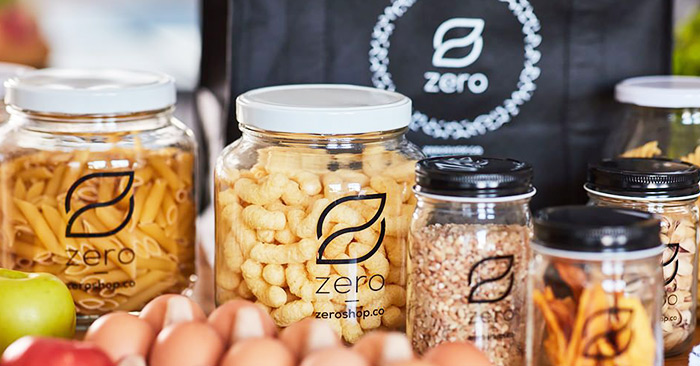
Zero Grocery Expands to Los Angeles
San Francisco-based zero waste grocery delivery platform Zero Grocery announced this week its plans to launch in Los Angeles, its first expansion beyond the Bay Area. The platform will begin taking orders beginning in February.
Launched in January 2019, Zero Grocery is a regional delivery service that offers products packaged in reusable glass jars and compostable packaging which establishes a closed loop system that eliminates plastic waste. According to a blog post by Zero founder and CEO Zuleyka Strasner, the Los Angeles business will start scale and scale quickly, with an initial product offering that is smaller than its current 1,100 items selection in the Bay Area. The company will also partner with local Los Angeles-based brands, such as Canyon Coffee and gluten-free bakery Breadblok.
Throughout 2020, Strasner said the platform built out new technology to improve its service as it expanded its reach in the Bay Area and adapted to issues presented by COVID-19, and the company’s growth to a new market “is the culmination of that work.”
“We think of our customers as family, and the same is true for the communities in which we operate — we want to be a part of these communities and help them grow,” she said. “In LA, we are an LA company. This means working with local brands, understanding the needs of our members, and giving back.”
Strasner said in the first two months of business in Los Angeles, for every order on the platform the company will donate a meal to The Midnight Mission, which provides services to the Los Angeles homeless community.
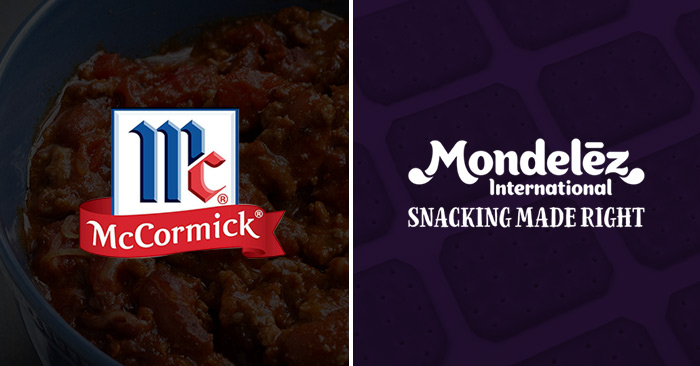
Mondelez and McCormick Report Q4 Earnings
On its Q4 earnings call yesterday, Mondelez reported 3.2% organic net sales growth for the quarter and 3.2% growth for the full year. Its Q4 growth was driven by increased consumption in its biscuits category in North America, which saw 7% sales growth this quarter. While chocolate grew 3% for the year and 5% for the quarter, the company’s overall growth has been negatively impacted by a drop in sales in the Gum & Candy segment, due to limited on-the-go purchases as a result of the pandemic.
“2020 was a successful year for Mondelēz International and I am proud of our performance, including record share gains, in a challenging operating environment,” Dirk Van de Put, Chairman and CEO, said on the call. “We made meaningful progress with our strategic agenda in 2020, continuing to increase investment in brands and capabilities, simplifying our portfolio, expanding into adjacent categories and making acquisitions in high growth areas of snacking.”
“We enter 2021 in a strong position financially and in the marketplace which gives us confidence that we can deliver on our long-term growth targets in 2021 and beyond,” he said.
Last summer, the company announced plans for a 25% SKU reduction and EVP and CFO Luca Zaramella said on the call that this plan to limit SKUs and innovation initiatives is “on track.” The company will be following a “very strict one in, one out,” approach to new product development, she added. Zaramella said the company does not anticipate a negative impact on topline growth as result of this plan, as it should simplify manufacturing and provide more shelf space for its top-selling SKUs.
Van De Put said in terms of innovation and acquisitions, the company plans to balance indulgent and health and wellness focused products and brands in its portfolio. It also will look to improve nutrition of current offerings and offer portion controlled items, as well as launch new brands internally and continue to gain a stronger foothold in the health and wellness category via acquisitions such as Hu Master Holdings.
In its earnings call yesterday, McCormick reported its Q4 sales as well as full year sales were up 5%. Its Q4 and full year results were driven by a significant increase in sales in the consumer segment, which the company attributed to a jump in at-home cooking, while its Flavor Solutions segment saw a decline due to COVID-19 foodservice restrictions.
Looking ahead to 2021, the company said it believes the trend of consumers cooking at home will continue beyond the pandemic, and also anticipates a gradual recovery of its foodservice business. The company also said it expects to grow sales by 7% to 9% from 2020, which includes sales from newly acquired Cholula hot sauce and flavoring company FONA.
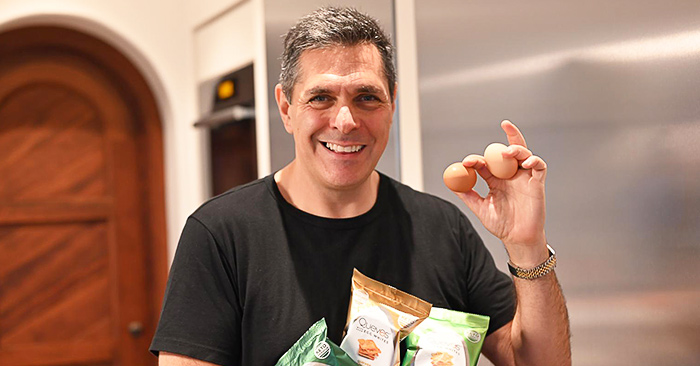
Daniel Lubetzky Invests in Quevos on Shark Tank
Egg white snack brand Quevos scored a deal with KIND Snacks founder Daniel Lubetzky in a “Shark Tank” episode aired last week. Quevos founders and longtime friends Nick Hamburger and Zack Schreier accepted Lubetzky’s offer for $200,000 in cash and a $200,000 line of credit in exchange for a 10% share in the business.
“Daniel is a partner and mentor who has been in our shoes building a health and wellness brand from the ground up through every stage of growth,” Hamburger and Schreier said in a press release. “We went into the Tank dreaming of making a deal with him, and can’t believe we did! We’re so excited to learn from him and to collaborate on helping more people enjoy Quevos.”
Schreirer, a Type 1 diabetic, and Hamburger founded the company to create a high protein, low carbohydrate snack from egg whites, which took two years to develop. Its egg white-based chips are offered in six flavors, two classic flavors and four keto-friendly varieties, sold for $2.49 per bag. Quevos can be found at retailers such as Wegmans, Vitamin Shoppe Illinois Whole Foods locations as well as the brand’s website and Amazon.
The company had raised approximately $1.6 million prior to the appearance on Shark Tank, including a grant from participation in the first class of Kraft Heinz’s Springboard accelerator in 2018.
Lubetzky said in a statement that he is excited to help Quevos “fulfill Quevos’ potential as they bring the nutritional value of egg whites to new forms of satisfying snacks.”
“They have created a very cool and differentiated product with huge mainstream appeal,” he said. “And I love that they’ve been best friends and partner entrepreneurs since childhood.”
